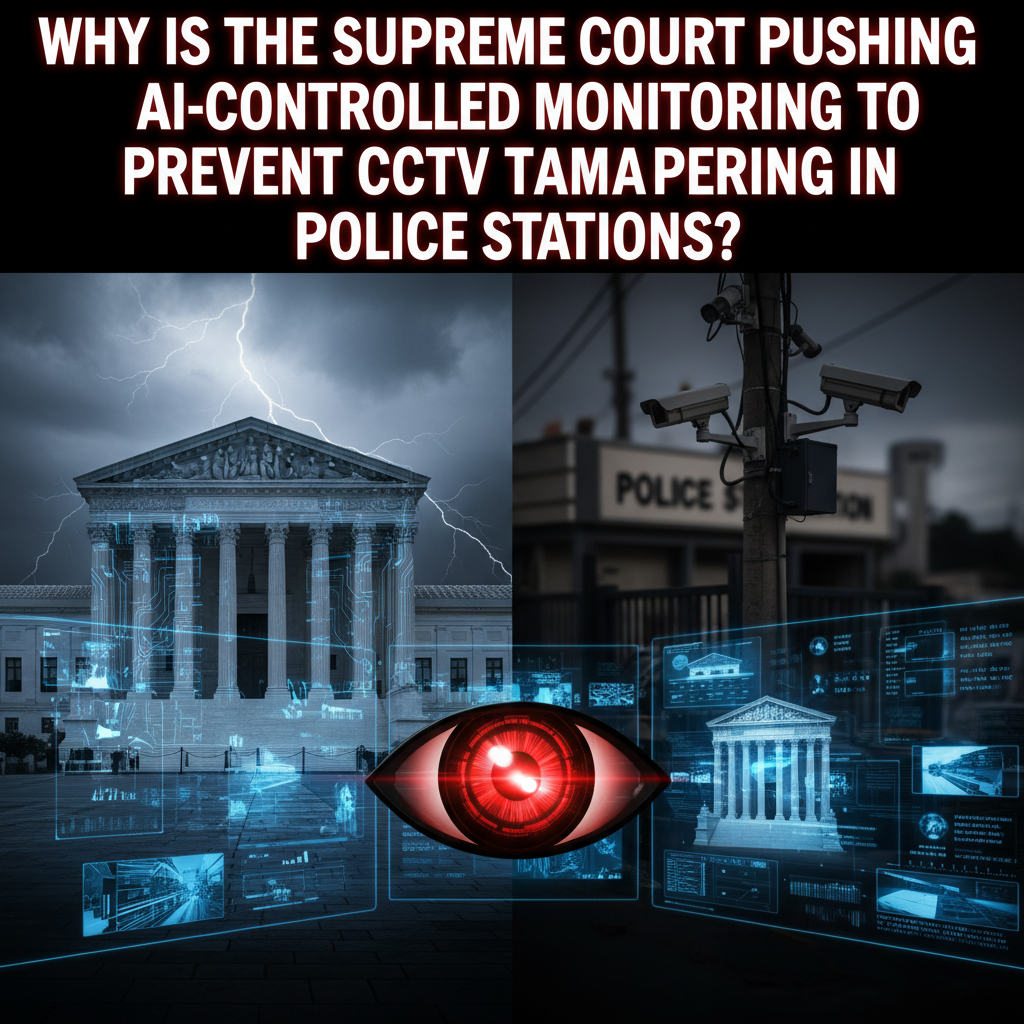Introduction:
It says something, doesn’t it, when the Supreme Court can’t quite trust the police to keep their own cameras rolling? On September 15, 2025, the atmosphere inside Courtroom No. 4 was almost charged exasperation, certainly, but underneath it, something like disbelief. Justices Vikram Nath and Sandeep Mehta, visibly fed up, waved aside the usual technical excuses. This wasn’t another empty complaint about malfunctioning gadgets. It was, at heart, a warning shot: how long can India tolerate deliberate tampering and evasions that gut the promise of safety in custody? One wonders how deep this rabbit hole goes, if even after waves of reform, police station CCTV is still more hope than habit.
Supreme Court Concern Over Non-Functional CCTV Cameras in Police Stations Prompts Call for Automated Monitoring
The bench minced no words. The judges directly confronted the fact that, too often, cameras at police stations are deliberately switched off or the footage conveniently disappears. “There is no other way,” Justice Mehta warned, except to consider advanced technology: a fully automated control room where every single camera feed is monitored continuously and without human interference. The Supreme Court concern over non-functional CCTV cameras in police stations led the Bench to muse about the necessity of someone or something watching the watchers, if public trust is ever to be restored.
Tech to the Rescue? Supreme Court Concern Over Non-Functional CCTV Cameras in Police Stations Spurs AI Solution
This time, the Bench didn’t just throw up their hands. Instead, they pointed to a path once reserved for science fiction: AI, not humans, monitoring live feeds. The possibility of involving an IIT to build software that instantly alerts oversight bodies if a camera goes offline is now under serious consideration. “Even monitoring should not be human, all by artificial intelligence,” remarked the judges. In the Supreme Court concern over non-functional CCTV cameras in police stations, AI might finally become an ally against convenient “technical glitches.” No more plausible deniability; every camera failure triggers an alert and leaves an indisputable trace.
A Troubled History: Supreme Court Concern Over Non-Functional CCTV Cameras in Police Stations Rooted in 2020 Directives
This frustration didn’t emerge yesterday. Back in 2020, a wave of custodial deaths forced the Supreme Court then led by Justice Rohinton Nariman to mandate CCTV coverage at every police station: entrances, exits, lockups, corridors, everywhere an allegation could be whispered. Since then, compliance has been patchy at best. Too often, after each tragedy, the excuse remains unchanged: “CCTV wasn’t working,” or perhaps, more cynically, “the hard drive failed.” This context frames current Supreme Court concern over non-functional CCTV cameras in police stations, as every new case echoes older failures.
Supreme Court Concern Over Non-Functional CCTV Cameras in Police Stations Highlights Systemic Compliance Failures
The ongoing Supreme Court concern over non-functional CCTV cameras in police stations was reinforced by Senior Advocate Siddhartha Dave, who called out not only local police but also top investigative agencies the NIA, CBI, ED for non-compliance. Today there’s a compliance affidavit, tomorrow, a clever official flicks a switch. The heart of the matter: unless technology genuinely outpaces intent, the right to safety in a custody cell remains theoretical. The Bench has made it clear this cycle has to end if the Supreme Court concern over non-functional CCTV cameras in police stations is to amount to real reform.
Conclusion: Supreme Court Concern Over Non-Functional CCTV Cameras in Police Stations Places Accountability in the Spotlight
With its order reserved and another hearing slated for September 22, the Supreme Court concern over non-functional CCTV cameras in police stations stands as a litmus test for the entire justice system. Can the country overcome “technical” mishaps and halfhearted affidavits when real civil liberties are on the line? As the debate now turns to AI-powered vigilance, the answer will speak volumesnot only about the future of police oversight, but also about India’s willingness to make every station, every cell, and every moment truly accountable.
Author Information:
By Karthikeyan Ganesan, a law student from KKC College of Law, reporting on law and technology for Nyayasphere. Karthikeyan always likes to stay updated with current trends and important information regarding the law and cases across the country.

